All Formats & Editions
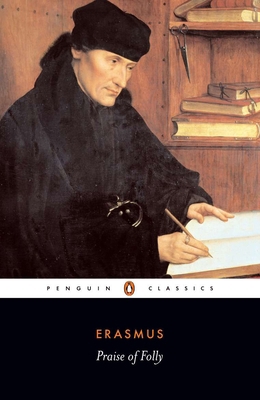
Praise of Folly
Erasmus of Rotterdam (c. 1466-1536) is one of the greatest figures of the Renaissance humanist movement, which abandoned medieval pieties in favour of a rich new vision of the individual's potential. Praise of Folly, written to amuse his friend Sir Thomas More, is Erasmus's best-known...

In Praise of Folly

The Praise of Folly: Updated Edition
Desiderius Erasmus (1466-1536) was a Dutch humanist, scholar, and social critic, and one of the most important figures of the Renaissance. The Praise of Folly is perhaps his best-known work. Originally written to amuse his friend Sir Thomas More, this satiric celebration...
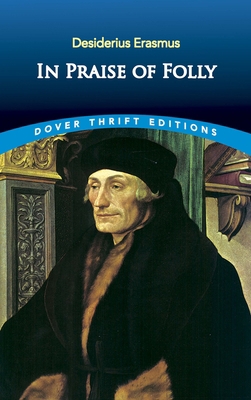
In Praise of Folly
This witty, influential work by one of the greatest scholars of the Renaissance satirizes the shortcomings of the upper classes and religious institutions of the time. The most effective of all Erasmus's writings -- ripe with allusions, vignettes, and caricatures -- the literary...

Praise of Folly and Letter to Maarten Van Dorp
Erasmus of Rotterdam (c. 1466-1536) is one of the greatest figures of the Renaissance humanist movement, which abandoned medieval pieties in favour of a rich new vision of the individual's potential. Praise of Folly, written to amuse his friend Sir Thomas More, is Erasmus's best-known...
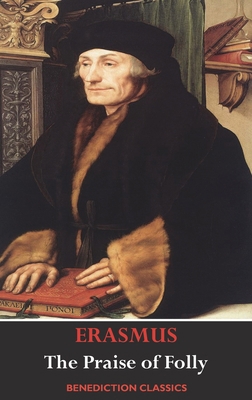
The Praise of Folly (Illustrated by Hans Holbein)
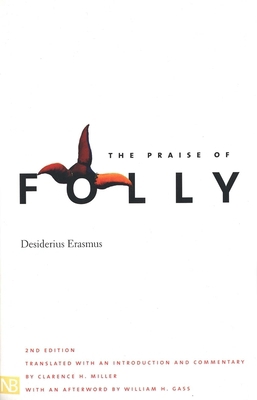
The Praise of Folly
First published in Paris in 1511, The Praise of Folly has enjoyed enormous and highly controversial success from the author's lifetime down to our own day. It has no rival, except perhaps Thomas More's Utopia, as the most intense and lively presentation of the literary, social,...

Praise of Folly
![Elogio de la locura [Spanish] 1482070855 Book Cover](https://i.thriftbooks.com/api/imagehandler/l/5B04429A12BF18FC1C7E9FC1CC55A6D2BE4F9E4D.jpeg)
Elogio de la locura [Spanish]
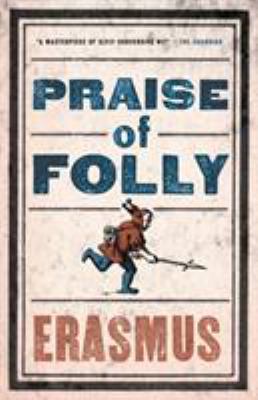
Praise of Folly
In addition to a sparkling modern translation of Praise of Folly, this volume also includes other works by Erasmus: Pope Julius Barred from Heaven, Epigram against Pope Julius II and a selection of his Adages. Together with the extensive annotation of the texts, these help to...
![Moriae Encomium [Latin] 146998430X Book Cover](https://i.thriftbooks.com/api/imagehandler/l/B454A0D848F393061AA28637CB3C8D7056AD9798.jpeg)
Moriae Encomium [Latin]

Erasmus in Praise of Folly, from the Latin Into...
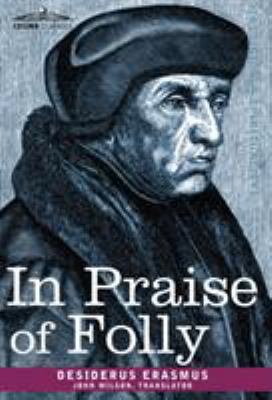
In Praise of Folly
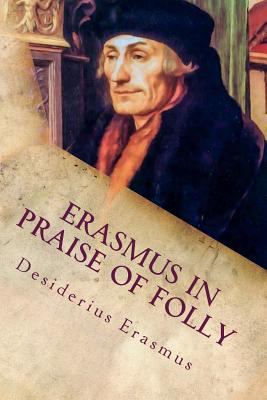
Erasmus In Praise of Folly: Illustrated
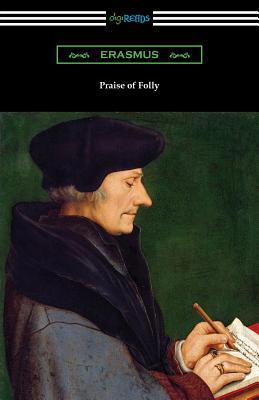
Praise of Folly
Written in Latin in 1509 and published in 1511, "Praise of Folly" by Dutch humanist and scholar Desiderius Erasmus is considered one of the most important works of literature in Western Civilization. The essay is a classic satirical work in the style of Lucian, the ancient...
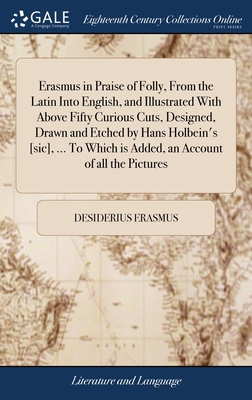
Erasmus in Praise of Folly, From the Latin Into...
The 18th century was a wealth of knowledge, exploration and rapidly growing technology and expanding record-keeping made possible by advances in the printing press. In its determination to preserve the century of revolution, Gale initiated a revolution of its own: digitization...
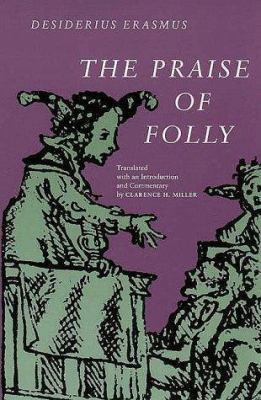
The Praise of Folly
First published in Paris in 1511, The Praise of Folly has enjoyed enormous and highly controversial success from the author's lifetime down to our own day. The Folly has no rival, except perhaps Thomas More's Utopia, as the most intense and lively presentation of the literary,...
![Elogio de la Locura [Spanish] 1535388854 Book Cover](https://i.thriftbooks.com/api/imagehandler/l/A3635BAC17D1F5F1A6FA54DE4364E6BCE4D2C0F8.jpeg)
Elogio de la Locura [Spanish]
El Elogio de la locura, (Morias Enkomion en griego y Stultitiae Laus en lat n: literalmente, Elogio de la estulticia o de la tonter a) es un ensayo escrito por Erasmo de Rotterdam e impreso por primera vez en 1511; est inspirado en De triumpho stultitiae del italiano Faustino...

The Praise of Folly
Praise of Folly is an essay written in Latin in 1509 by Desiderius Erasmus of Rotterdam and first printed in 1511. Inspired by De Triumpho Stultitiae, written by the Italian humanist Faustino Perisauli, born at Tredozio, near Forl . Praise of Folly is considered one of the most...

The Praise of Folly (Modern Library, 331.1)
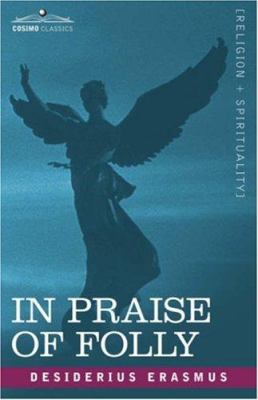
In Praise of Folly
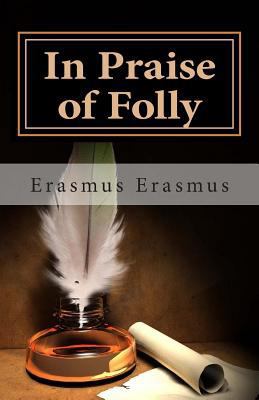
In Praise of Folly
In Praise of Folly is an essay written in 1509 by Desiderius Erasmus of Rotterdam and first printed in 1511. The essay was inspired by De Triumpho Stultitiae, written by Italian humanist Faustino Perisauli, born at Tredozio, near Forl . Erasmus revised and extended the work,...
![Erasmus von Rotterdam: Lob der Torheit (Mit Ill... [German] B0851LH8FT Book Cover](https://i.thriftbooks.com/api/imagehandler/l/0704E022CCBECD89EF660F3B2A3DF3264D39DA68.jpeg)
Erasmus von Rotterdam: Lob der Torheit (Mit Ill... [German]
Erasmus von Rotterdam: Lob der Torheit Mit 32 Illustrationen von Hans Holbein dem J ngeren Neuausgabe 2020, mit aktuellem Vorwort
Das >Lob der TorheitLob der TorheitBestseller-AutorErasmus-ProgrammRalf Dahrendorf ber >Lob...
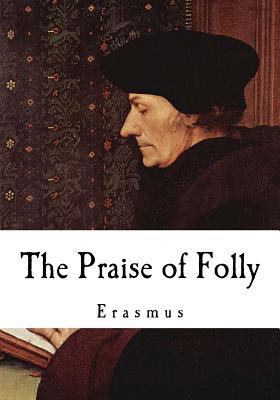
The Praise of Folly: Erasmus
![Eloge de la folie [French] 2930718293 Book Cover](https://i.thriftbooks.com/api/imagehandler/l/65DA7D442DCB0B92E8BF19463F8AEA615642765E.jpeg)
Eloge de la folie [French]
Ce classique parmi les classiques illustre merveille la pens e de la Renaissance.
Une excellente mani re de d couvrir l'humanisme d'Erasme, grand ami de Thomas More (L'Utopie).
d104e int gral.



